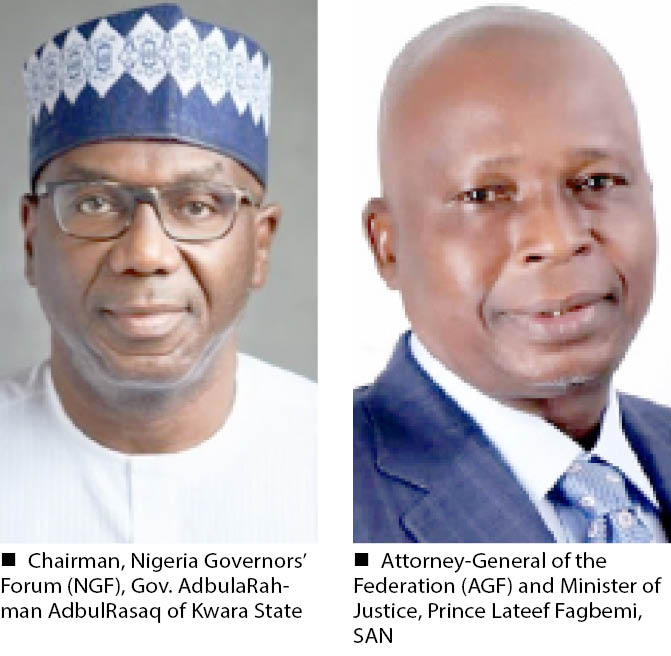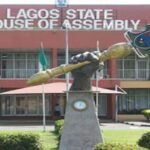The fate of more than 200 Local Council Development Areas (LCDAs) is uncertain following the Supreme Court verdict granting financial autonomy to the 774 LGAs in the country.
While some lawyers, including senior members of the Bar, believe that the recent Supreme Court judgment automatically deprives the LCDAs of funds, as they were extracted from LGAs’ allocations and made available to them by state governments, others said it will not have consequential effect on the operations of the community development areas.
The court judgment mandates the Federation Account Allocation Committee (FAAC) to directly disburse monthly allocations to the LGAs, thereby eliminating the Joint Account Allocation Committee (JAAC).
The implementation of this judgment will then leave the LCDAs without funds to operate, since the state governments are said to be crediting their accounts out of the LG funds disbursed by the JAAC.
- Zamfara lawmaker, ex-LG chair, district head nabbed over kidnapping
- Media owners seek presidential intervention to protect indigenous TV channels
Investigations by our correspondents revealed that the concept of the LCDA is more entrenched in the southwestern states of the country – Lagos, Ekiti, Osun and Ondo states.
However, the remaining two states from the zone, Ogun and Oyo, have scrapped theirs.
Nasarawa, Adamawa and Taraba are the northern states where LCDAs still exist.
In Nasarawa State, there are 16 of them, created out of the 13 LGAs, while Taraba State has only two – Yagtu and Dangda Development Areas – in addition to the 16 LGAs.
Adamawa State has 50 LCDAs created in 2023 by the Ahmadu Umaru Fintiri administration.
In Bauchi State, the 30 LCDAs established during the administration of then-governor Ahmadu Adamu Muazu, who served between 1999 and 2007, are reportedly non-functional.
Bayelsa State in the South South geopolitical zone, which has eight LGAs, has 32 Rural Development Areas (RDAs) being financed by the state government through the state-LGAs joint account.
Before the Supreme Court ruling on LG autonomy, state governments and LGAs operated a joint account system where federation account allocations meant for LGs were shared between them and the LCDAs in states where they exist.
However, observers believe that the latest ruling has cast doubt on the sustainability of the LCDAs which have been dependent on funds allocated to LGAs.
Officials of LGAs had long argued that the system hindered their ability to fully access what was meant for them, thereby making it difficult for them to manage their localities effectively, and also provide the services needed by their people.
Also, some people living in some of the LCDAs say if allowed to function based on their mandates, strong and vibrant LGAs have the potential to meet the yearnings of people at the grassroots.
Legal experts suggest that with the dissolution of the joint account system, LCDAs face an uncertain future, and urge state governments to either abolish them or seek alternative funding sources.
Status of LCDAs in various states
Lagos
Lagos State has 20 constitutionally recognised LGAs and 37 LCDAs. The LCDAs were created by President Bola Ahmed Tinubu during his tenure as governor between 1999 and 2007.
The creation led to a conflict between the state and the federal government under former President Olusegun Obasanjo. This made the Obasanjo administration to block funds meant for the 20 LGAs, until a Supreme Court ruling in favour of the Lagos State government compelled the then administration to release the withheld funds.
“It is Lagos State under Tinubu that brought the issue of LCDA to limelight,” said an elderly man, who gave his name as Pa Joseph.
The octogenarian, who lives in Igando-Ikotun LCDA, which was curved from Ikeja, said the system worked in Lagos.
“It cascaded developmental projects especially in the areas of health and primary education to underserved communities,” he said.
Gboyega Akoshile, Special Adviser on Media and Publicity to Lagos State governor, Babajide Sanwo-Olu, in a chat with Daily Trust, assured that the LCDAs in Lagos State would not be stranded.
He said: “It is creativity that gave birth to the LCDAs over 20 years ago. That creativity is what we would continue to improve upon given the present circumstances.”
He said Governor Sanwo-Olu would fashion out a way through which the people would not be left stranded.
He said details of the government’s plan would be made known in days and weeks to come, adding, “There is no cause for alarm.”
Ekiti
There are 16 LGAs and 19 LCDAs, created under former Governor Kayode Fayemi in 2021.
The development areas in Ekiti are being funded from the allocations of the LGAs out of which they were carved out.
The state Commissioner for Information, Taiwo Olatunbosun, said there are no plans to scrap the LCDAs in the state.
He said the government had been transparent and prudent regarding local government funds.
Olatunbosun said the state government will adhere to the Supreme Court judgment, adding that Governor Oyebanji’s administration was committed to democratic principles and will not interfere with the councils’ finances.
“That is not an issue for now,” he said, adding that “any further decisions will be reviewed by the state legislators.”
Osun
Osun has 30 LGAs and 36 LCDAs, created by former governors Adebisi Akande and Rauf Aregbesola. The local councils are currently administered by caretaker committees appointed by Governor Ademola Adeleke.
Malam Rasheed Olawale, who is the spokesman for Governor Adeleke, said the government’s decision regarding the Supreme Court judgment and the future of LCDAs would be made public soon.
Ondo
Ondo recently created 33 LCDAs to coexist with its 18 LGAs. However, the State High Court ruled that the creation of the LCDAs was unconstitutional.
Governor Lucky Aiyedatiwa, who succeeded the late governor, Rotimi Akeredolu, announced a transition committee for the LGAs and LCDAs.
However, opposition parties and human rights lawyers asked the governor to immediately conduct elections into the LGAs and LCDAs instead of the 7-member committee overseeing the council areas.
Morenike Isaac, a school teacher, said if she had her way, she would scrap the LCDAs.
“I don’t think we need them (the LCDAs) because, like in LGAs, the LCDAs also have chairmen and other supporting staff, and you have to pay their salaries and allowances.
“The monies being paid to them could be used to improve the lives of the poor,” she said.
The Attorney-General and Commissioner for Justice in the state, Olukayode Ajulo, said they were awaiting the Certified True Copy (CTC) of the Supreme Court judgment on local government autonomy before determining their next step.
“This judgment, which has garnered significant public interest, is indeed a matter of great importance to our legal system and the country as a whole.
“We must have access to a complete and accurate record of the judgment to thoroughly study its contents and implications,” he said.
Adamawa
Adamawa State has 50 Local Council Development Areas (LCDAs) in addition to its 21 Local Government Areas (LGAs).
These LCDAs were established to bring governance closer to the people, particularly in rural areas, according to the state government.
The state’s deputy governor, Prof. Kaletapwa Farauta, while inaugurating the administrators for the 50 LCDAs in December 2023, stated that the initiative was part of the government’s commitment to good governance and delivering democratic dividends to the grassroots.
Regarding the potential scrapping of the LCDAs following the Supreme Court judgment on local government autonomy, the Chief Press Secretary to the Governor, Humwashi Wonosikou, said, “I have no idea whether they will be scrapped or not.”
Nasarawa
The state government declined to comment on whether its 18 development areas would be scrapped or not.
When reached by phone, the state’s Commissioner for Local Government, Chieftaincy Affairs and Community Development, Mr Iyimoga Oyigye, stated, “I don’t speak to people on air unless I see them. So, I don’t think I can speak to you on the phone unless I see you in person.”
Bayelsa
Bayelsa’s 32 RDAs were initially established as local governments in 2000 during the administration of the state’s first civilian governor, the late Diepreye Alamieyeseigha.
However, they were not recognised by the federal government under President Olusegun Obasanjo.
When former Governor Seriake Dickson took office in 2012, he renamed them Rural Development Areas. These areas were tasked with managing the administration of regions that were remote or separated from local government headquarters by rivers.
LCDAs scrapped in Oyo, Ogun
The current administration in Oyo State scrapped the 35 LCDAs created by former Governor Abiola Ajimobi, reverting to the 33 constitutionally recognised LGAs.
The local government chairmen were elected in April 2024.
Also, Ogun State governor, Dapo Abiodun abolished the 37 LCDAs created by his predecessor, Ibikunle Amosun, and reverted to the 20 constitutionally recognised LGAs.
They can only survive through alternative funding – Lawyers
Dayo Akinlaja (SAN) said he believes the states would find a way around the situation, while explaining that the law setting up the LCDAs may have already taken care of that.
“Recall that by Section 7 of the Constitution, a state government is imbued with the power and responsibility to provide for the establishment, structure, composition, finance and functions of the local government councils.
“That being so, all the state needs to do is to pass a law to designate the LCDAs as part of the structure and composition of the constitutionally recognised local government councils,” he said.
Similarly, Tawo Eja Tawo (SAN) said based on the Supreme Court verdict, the federal, state and local governments are recognised tiers for the allocation of revenues without the LCDAs.
“The states can negotiate with the local governments on how to work out a development programme for the LCDAs,” he added.
He added that the judgment has again highlighted the policy role of the Supreme Court as its decisions become law except when the legislature amends such through constitutional amendment.
“The only fear now is for the local governments not to abuse this opportunity, although I would want us to try it first as society is dynamic,” he added.
Verdict raises issues of federal structure – Agbakoba
Reacting to the dilemma over the LCDAs, Olisa Agbakoba (SAN) said the judgment has raised fresh issues about the proper structure of the federation.
Agbakoba, a former president of the Nigerian Bar Association (NBA), said local government matters ought not to be in the Nigerian Constitution.
“Still, the federating units should be only the federal and state or regional governments, whether six or eight.
“The way out is that the states ought not to be the federating unit but the regions while the regions and local governments are arranged under them,” he said.
He said the apex court judgment also highlights the provision of Section 162 of the Constitution on how funds should be distributed between the states and the 774 local governments, with the exclusion of the LCDAs.
A constitutional lawyer, Dr Wunmi Bewaji, said the judgment does not affect the LCDAs, stressing that state governors would still be in charge.
“The local government consists of six territories delineated in the Constitution. So, the money coming to that LG would now be shared by the LCDAs making up the local government,” he said.
He said while the ruling mandates direct allocation to LGAs, expenditure remains subject to gubernatorial approval, rendering the Supreme Court’s decision largely symbolic in practical terms.
“The judgment amounts to nothing as far as the practicality on the ground is concerned. Now we are talking about LCDAs, the suit filed at the Supreme Court didn’t say anything about LCDAs because LCDA is a reality on the ground. Again, the Supreme Court decision concerns only revenue, it says you can collect money, it doesn’t say you can spend money,” he said.
Gbenga Ariyibi, an Ekiti-based lawyer, expressed concerns about the financial viability of LCDAs post-judgment, noting that some states might struggle to fund them while others may manage better.
He said the Supreme Court decision has initiated a significant shift in local governance, prompting states to re-evaluate their administrative and financial strategies to ensure the sustainability of LCDAs and effective service delivery.
Contributions by Abdullateef Salau, John C. Azu (Abuja), Abdullateef Aliyu, Peter Moses (Lagos), Adenike Kaffi (Ibadan), Hameed Oyegbade (Osun), Raphael Ogbonnaiye (Ado-Ekiti), Tosin Tope (Akure), Hassan Ibrahim (Bauchi), Magaji Isa Hunkuyi (Taraba), Umar Muhammed (Lafia), Amina Abdullahi (Yola) & Bassey Willie (Yenagoa)

 Join Daily Trust WhatsApp Community For Quick Access To News and Happenings Around You.
Join Daily Trust WhatsApp Community For Quick Access To News and Happenings Around You.


